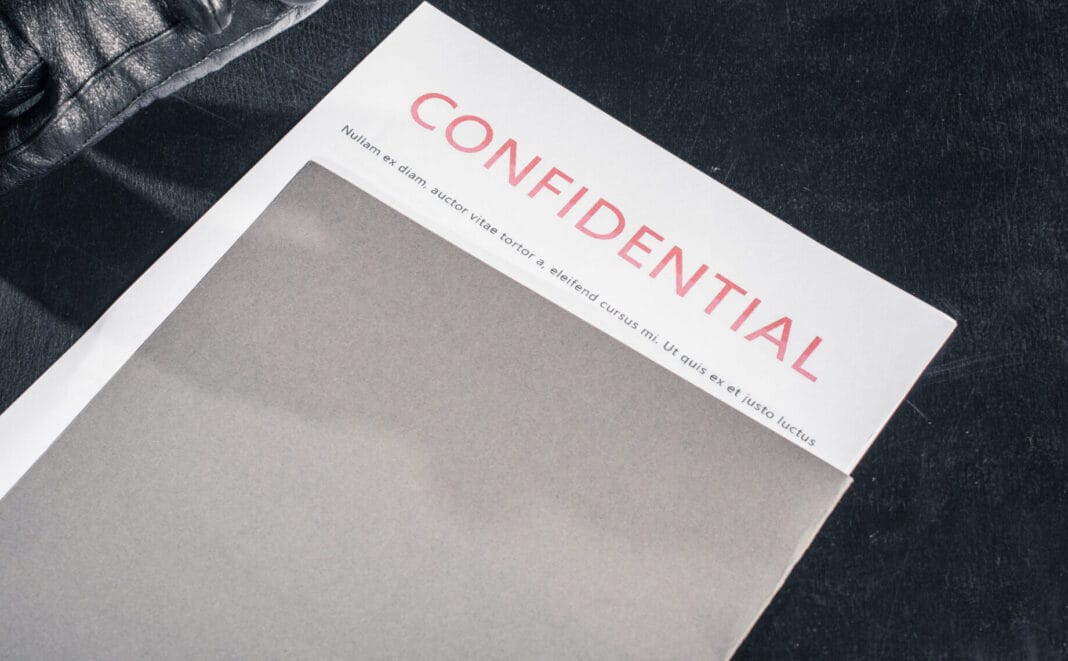Court of Appeal upholds ruling against solicitor who kept opposition’s leaked confidential documents
A solicitor who held onto leaked confidential documents from the opposing side has lost his appeal against a misconduct ruling. The Court of Appeal found that Seamus Andrew was not entitled to challenge the damning High Court judgment which accused him of acting improperly and motivated by greed.
Andrew, a solicitor involved in the high-profile dispute The Federal Republic of Nigeria v Process and Industrial Developments Ltd (P&ID), had attempted to overturn findings made during Nigeria’s successful challenge of a multi-billion-dollar arbitration award. He argued that the original judge treated him unfairly by accusing him of misleading the court and seeking personal financial gain.
The case centred on internal legal documents from Nigeria’s side which were deliberately leaked by individuals in the country. Andrew received the documents but failed to disclose this fact, later claiming he believed the documents had been provided as part of settlement discussions.
During the 2023 High Court judgment following an eight-week trial, Mr Justice Robin Knowles rejected Andrew’s explanation. The judge ruled that Andrew knew the documents were privileged and deliberately chose to retain and use them. He called Andrew’s conduct “indefensible” and driven by financial incentive, as Andrew stood to make up to $3bn if his client, P&ID, succeeded in the arbitration.
Embed from Getty ImagesThe judge also referred the solicitor’s conduct to the Solicitors Regulation Authority and barrister Trevor Burke KC’s conduct to the Bar Standards Board. In his conclusion, Knowles remarked the case demonstrated “what some individuals will do for money.”
Andrew was initially given until December 2023 to file any appeal grounds. After missing this deadline, he applied for permission to appeal directly to the Court of Appeal. His initial request was refused by Lord Justice Males, but he was later granted a two-day hearing to argue his case.
Andrew claimed that the judge’s findings were procedurally unfair and breached his human rights. He argued that allegations of bribery and corruption had not been put to him during cross-examination, denying him the opportunity to address them or seek separate legal advice. His lawyers also argued that Andrew was not properly warned of his duty to return the leaked documents and that he faced conflicting obligations between returning the documents and maintaining client confidentiality.
However, the Nigerian government’s legal team firmly rejected these claims, arguing that Andrew had been fully aware of the issues and had lied to the court about the source and legitimacy of the documents. They said the suggestion that the judge had invented allegations was “completely divorced” from the reality of the proceedings.
Delivering the Court of Appeal’s judgment, Sir Julian Flaux ruled that Mr Justice Knowles was “clearly entitled” to disbelieve Andrew’s version of events. He found that Andrew’s evidence amounted to “self-serving denials” which the judge did not accept, and that there was no requirement for the judge to provide further explanation for rejecting his testimony.
Sir Julian added that Andrew had been given ample opportunity to address the evidence during the High Court trial and that the serious findings against him were fully justified. The Court of Appeal therefore refused permission to appeal and upheld the original ruling.
The outcome leaves Andrew facing the possibility of professional sanctions as the SRA considers the findings. The case also highlights the risks lawyers face when receiving confidential or privileged documents from opponents, particularly when such documents are improperly obtained.




